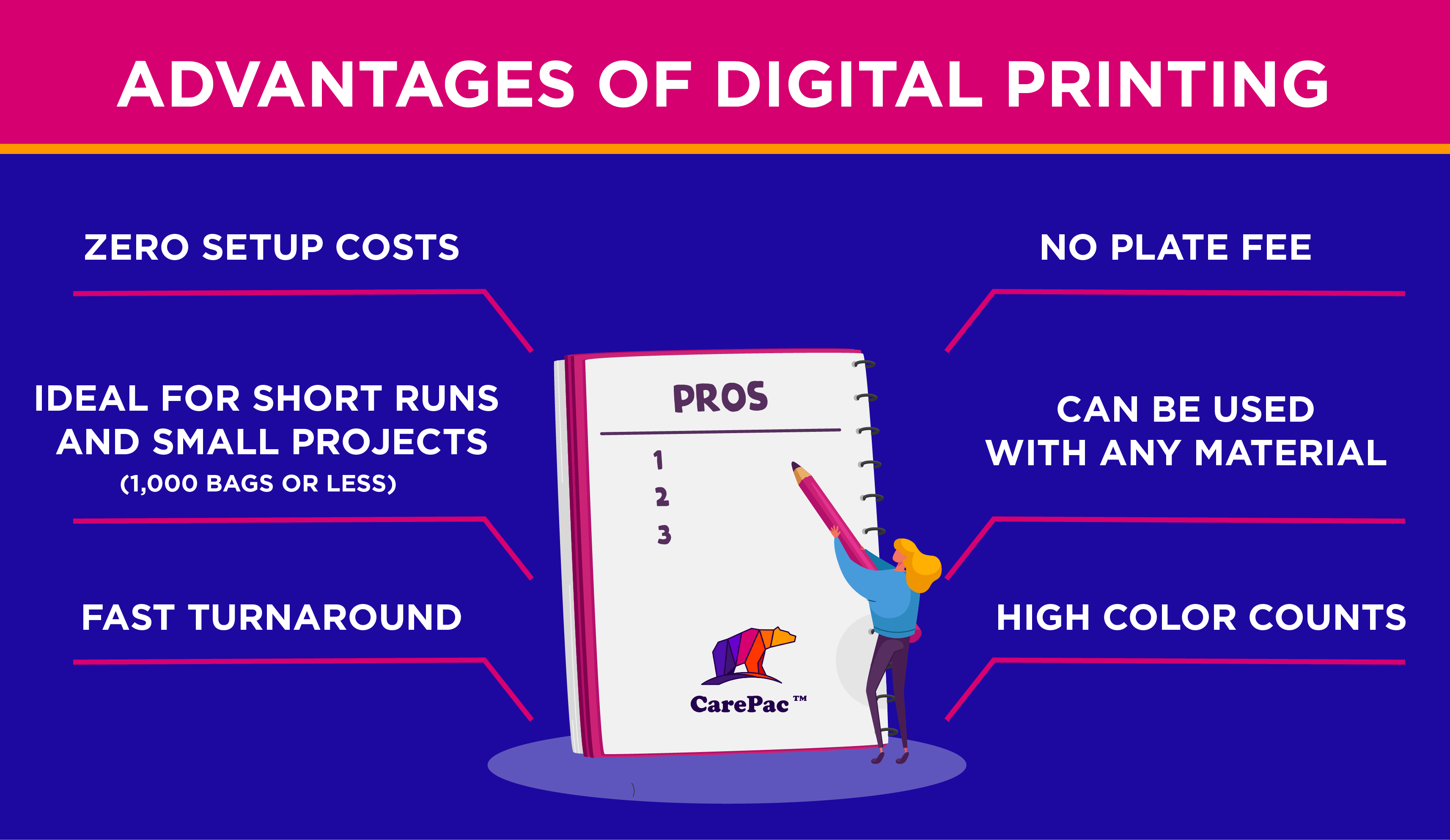The Ultimate Guide To Digital Printing
Table of ContentsAll About Digital PrintingAll About Digital PrintingDigital Printing Fundamentals ExplainedThe Buzz on Digital PrintingThe Main Principles Of Digital Printing A Biased View of Digital Printing
Variable data printing, such as straight mail with personalized codes and addresses, is ideally matched for digital printing. Digital fast printing just requires 4 steps of design, testimonial, printing and binding to get whatever done. Digital quick printing has an exceptional benefit: print on need.According to PMMI, digital printing allows brand names and suppliers to respond promptly to customer needs while enhancing the supply chain, reducing warehousing price and waste, and enjoying faster time to market. That all noises great, yet exactly how does this innovation do all that? The major differentiator of these modern technologies is that there are no set-up charges and no plates with digital printing.
The Single Strategy To Use For Digital Printing
According to Wikipedia, the biggest distinction between digital printing and traditional approaches such as lithography, flexography, gravure, or letterpress - Digital Printing is that there is no requirement to replace printing plates in electronic printing, whereas in these analog printing methods home plates are consistently changed. This leads to quicker turnaround time and lowers price when using electronic printing.
Rapid manufacturing suggests getting your item to market faster. It also indicates it's simpler and faster to make adjustments later, when you change a recipe, add a SKU, or develop seasonal product packaging. Digital printing is extremely versatile, so it's very easy to make modifications to the package design promptly. It all goes back to home plates.
With conventional printing methods, short-run printing is simply not possible. Since a wonderful style can make or break your item, electronic printing constantly develops top notch, clear and vibrant graphics each time.
Digital printing is the procedure of printing digital-based images straight onto a selection of media substratums. There is no requirement for a printing plate, unlike with offset printing. Digital documents such as PDFs or desktop publishing documents can be sent out straight to the electronic printing machine to print on paper, image paper, canvas, fabric, synthetics, cardstock and various other substratums.
Some Known Details About Digital Printing
According to PMMI, digital printing permits brand names and suppliers to respond quickly to consumer needs while enhancing the supply chain, decreasing warehousing price and waste, and enjoying faster time to market. That all noises terrific, however exactly how does this technology do all that? The significant differentiator of these technologies is that there are no set go right here up charges and no plates with electronic printing.
According to Wikipedia, the best difference between electronic printing and traditional techniques such as lithography, flexography, gravure, or letterpress is that there is no need to replace printing plates in electronic printing, whereas in these analog printing methods the plates are consistently replaced. This leads to quicker turnaround time and lowers price when utilizing electronic printing.

Some Known Factual Statements About Digital Printing
With standard printing methods, short-run printing is just not possible. Since a fantastic style can make or damage your item, electronic printing continually creates high-quality, clear and colorful graphics each time.

According to PMMI, digital check that printing allows brands and manufacturers to react promptly to consumer needs while improving the supply chain, minimizing warehousing cost and waste, and appreciating faster time to market. That all audios great, but exactly how does this modern technology do all that? The significant differentiator of these modern technologies is that there are no set up fees and no plates with digital printing.
Not known Factual Statements About Digital Printing
This results in quicker turn-around time and lowers price when utilizing digital printing.
Speedy manufacturing implies getting your item to market faster. It also implies it's easier and faster to make changes later on, when straight from the source you transform a recipe, add a SKU, or produce seasonal product packaging. Digital printing is extremely versatile, so it's very easy to make adjustments to the bundle layout swiftly. It all goes back to home plates.

Everything about Digital Printing
Digital printing is the procedure of printing digital-based images directly onto a variety of media substratums. There is no demand for a printing plate, unlike with balanced out printing. Digital documents such as PDFs or desktop computer publishing data can be sent out directly to the digital printing machine to print on paper, image paper, canvas, fabric, synthetics, cardstock and other substrates.